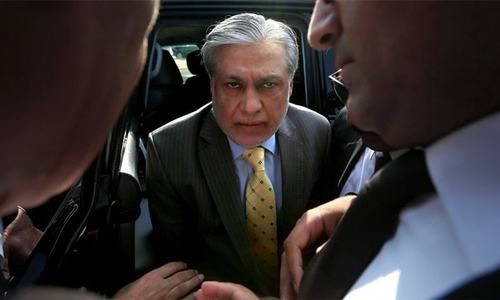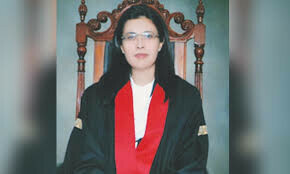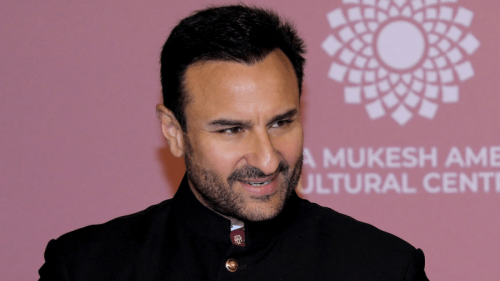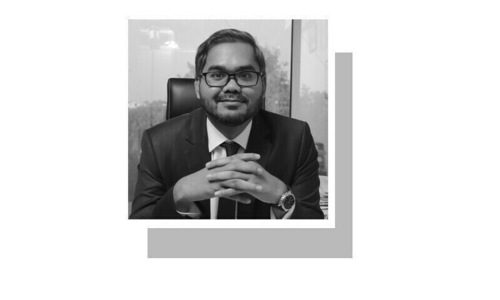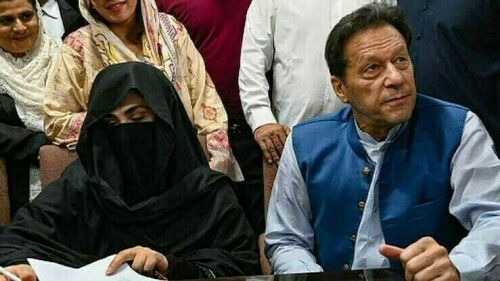I only own one property, can disprove all corruption allegations: PML-N’s Ishaq Dar

Former finance minister and PML-N leader Ishaq Dar has claimed that he only owns a single property, which is his sole residence in Pakistan, and denied allegations of his property interests abroad.
Appearing on BBC's well-known programme HARDtalk, Dar said he was living in the United Kingdom due to medical reasons and could not return to Pakistan because he was still suffering.
After the PML-N leader denied allegations of corruption against him and boasted of a clean tax record, host Stephen Sackur asked him point-blank how many properties he and his family owned.
"It's all declared in my tax returns," replied Dar. "I have my main residence in Pakistan which has been taken over by this (PTI) regime. I haven't got too many properties."
When pushed by Sackur, he said he owned "one" property that was his only residence, and that he possessed no property in London. He said his sons who had been in business for 17 years owned a villa in Dubai but they were independent of him.
Dar, a close aide to former prime minister Nawaz Sharif who is also living in London for medical treatment, was then asked why he didn't go to Pakistan and make his case before a court of law if his record was so clear and he only owned one property.
"Well the court of law [...] my lawyers were there, I'm here for medical treatment, I have cervical issue," he replied, to which Sackur asked: “Are you still really suffering?”
"Yes, I am," Dar responded, who has been in Britain for around three years.
"And you couldn't possibly get back to Pakistan?" Sackur then asked.
"Well let's see what's happening in Pakistan," replied Dar. "Where are the human rights, what's happening in NAB (National Accountability Bureau) custody where dozens of people have been virtually killed. There are human rights abuses."
Asked if he was in the UK to "escape the judicial process", Dar said he had the evidence to disprove the allegations against him but alleged that in Pakistan, the "corruption rhetoric" was used to suppress civilian leaders.
"The corruption rhetoric has been used in the last few dictatorships and the current one isn't different because this regime is known to be under a covert coup or a judicial martial law. I can prove that there's nothing against me," he said.
Responding to a question about the NAB's findings regarding his family assets being "beyond his known sources of income", Dar said it was on the Supreme Court's directions that a joint investigation team (JIT) was set up in the Panama Papers case, which he termed as an "extra-judicial activity". He said the two military intelligence members of the JIT were "virtually governing all the six members" of the team.
The former finance minister said the NAB had "lost its integrity" a long time ago and was used as a tool against political opponents.
Dar said the prime allegation against him in the JIT report, on the basis of which a corruption reference was filed against him, was that he did not file 20 years' worth of tax returns in Pakistan, but claimed that he had never missed filing his returns either abroad or in Pakistan since the 1970s.
"If my net worth is documented in my tax return and my tax return is not missing so it is totally accounted for, so what is the issue? The issue is something different, because Mr Sharif was fighting for civil supremacy and I have always been fighting for financial and fiscal discipline and transparency," he said.
Answering a question, he said the judgements of both the cases in which Sharif was convicted stated that "the prosecution has not been able to prove any corruption, any kickback, any loss to the exchequer".
Sackur then countered: "I'm sorry sir, but it is quite clear that he is a convicted criminal. [...] And now, you and he put yourself forward as leading voices in the opposition in Pakistan, demanding early elections and an end to Imran Khan's government and I ask you, what credibility do you think you have with the Pakistani people?"
"What credibility [does] Imran Khan's government have? The world has witnessed that it was a stolen election; it was a rigged election," Dar replied, adding that observers had termed the 2018 polls the "dirtiest election".
'It's not the military but certain individuals'
Sackur then asked Dar about Nawaz and his (Dar) own allegations against Army Chief Gen Qamar Javed Bajwa of manipulating the 2018 elections and installing Prime Minister Imran's government.
"It's a reality; the buck stops at the top and the deep state is known [to do what it] does in Pakistan," Dar said in response, adding that the alleged campaign against Sharif began with Dawn Leaks.
Refusing to acknowledge that his party was accusing the army of "subverting democracy" in Pakistan, Dar said the roles of individuals should be considered. "It's not the military, we have to talk about individuals; it's not the entire institution. Let's create a difference. The wish list is a plan of certain people who enforce in Pakistan lots of laws," he added.
Sackur then asked Dar whether it was not "hypocrisy" for Sharif to accuse the military of interfering in politics after having worked "hand in glove with [...] military dictator General Zia for many years".
Dar attributed the change in Sharif's view of the army leadership to "evolution process", saying Prime Minister Imran's own interior minister told "the whole world that Mr Sharif would've been prime minister for the fourth time if he had not gotten in trouble with the establishment".
Asked whether Sharif had "overstepped the mark" with his criticism of the army leadership because of reported differences within the Pakistan Democratic Movement (PDM) over the hardline approach, Dar said the former prime minister was "not anti-military" and blamed certain individuals.
"If Mr Sharif talks of certain interventions which are against the oath and Constitution of Pakistan, is it wrong?" he asked.
Dar said the opposition's movement was aimed at saving the country, when asked by the host whether the opposition leaders "really have the interests of ordinary Pakistani people at heart" by agitating in the midst of a pandemic and economic downturn.
He said the PML-N during its tenure had brought down inflation, raised the GDP and Pakistan was set to join the G20 group by 2030, but the PTI during its two years "ruined" the economy and the country saw negative GDP growth for the first time since 1952 before the Covid-19 pandemic.
He termed "supremacy of democracy and free and fair elections" as the PML-N's ultimate goal.
"So so will you go home to face the rule of law?" Sackur asked.
"Of course I will, [for] rule of law and transparency," Dar replied, saying all institutions needed to work within their prescribed domains.
The interview created a buzz on Pakistani social media and 'Ishaq Dar' and 'HARDtalk' remained the top trends on Twitter in the country, with netizens sharing clips from the interview.
Host Stephen Sackur too noted in a tweet that the interview "seems to be causing quite a stir in #Pakistan".
Dar was declared an absconder by the Supreme Court in 2017 when he failed to appear before it since he was in London, reportedly undergoing medical treatment. Since then, he remains in London.
In May 2018, the apex court had suspended Dar's Senate membership.



